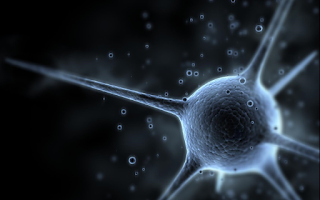IS MAN A PRODUCT OF THE COSMOS?
In the text THE HUMAN CONDITION,
recently posted on this blog, when reflecting on man, I emphasized his aspect
of being "created" and therefore subject to the will of his Creator.
However, it is the opinion of many that the human being does not come from a
creation, but from an evolution of matter, in time. If so, man as a being
originated from inert matter, which by means of spontaneous and random chemical
reactions originated an initial cell from which all living beings derive,
should not satisfy anyone, and as a changing being, is free to build its own
existence.
Such positioning is supported by the
theory about the origin of the universe, the "Big Bang." According to
this research, 13.9 billion years ago, all existing matter was concentrated in
a microscopic initial particle, which exploded at one point and spread it into
space, forming the world we see today. After the explosion, a process of
expansion and cooling of the universe began. Around four billion years ago,
physical interactions and the chemical reactions of the transformation of
matter that had been taking place unleashed the mechanisms of life on Earth.
With respect to living beings, there
exists, in alignment with the Big Bang, the theory of Modern Evolutionary
Synthesis. According to this study, the fact that all organisms have
morphological, biochemical and genetic similarities suggests that all known
species descend from a common ancestor. The current species would be a stage in
this process of evolution, in which the human race is found. Man, then, would
not look like primates, but rather a kind of evolving primate.
If these theories are correct, man is
more a product of these cosmic transformations. However, without passions and
in search of truth, the facts need to be analyzed as such. The "Big
Bang", although it presents an interesting proposal about the origin of
the universe, explains in a satisfactory way only the current behavior of the
cosmos: its expansion. Numerous scientists recognize that this theory provides
no explanation for the initial conditions of the universe. There is still not
enough science to explain the uniqueness of the initial microparticle, as well
as what existed before it, what its origin, much less what caused its
explosion.
With regard to the possibility of the
origin of life from inert matter, from an initial cell resulting from
spontaneous and random chemical reactions (abiogenesis), the scientific
community has not yet found the evidence. There is only the hypothesis. Someone
has already said that this would require a miracle as great as the one signing
the biblical text. It is relevant to note that Science has never observed
abiogenesis happening in nature, and has not yet been able to create a way of
life through controlled experiments.
Regarding the fact that living beings
have morphological, biochemical and genetic similarities, this does not imply
that they come from a common ancestor. This would involve the evolution from
one species to another, a purely theoretical process and never directly
observed. It would be, for example, something like a monkey evolve into a human
being. This hypothesis is studied only through the analysis of fossils and
research on similarities and morphological differences of organisms, which are
incipient, fragile, and with little specific conclusions.
It must be acknowledged that research
into the origin of the universe and man has produced a store of respectable
knowledge. However, these questions remain unanswered. To assert that the
universe originates from an initial explosion without proving the circumstances
that involved it, as well as declaring the emergence of man from an
evolutionary process without evidence would be a purely religious act, an act
of pure faith and not a declaration scientific basis. Science works with
experimental proof. Thus, it is reasonable to assert that such propositions
constitute only theories and that the biblical thesis on the origin of the
universe and man remains uncontested.
Antônio Maia – M.Div.
Copyright


